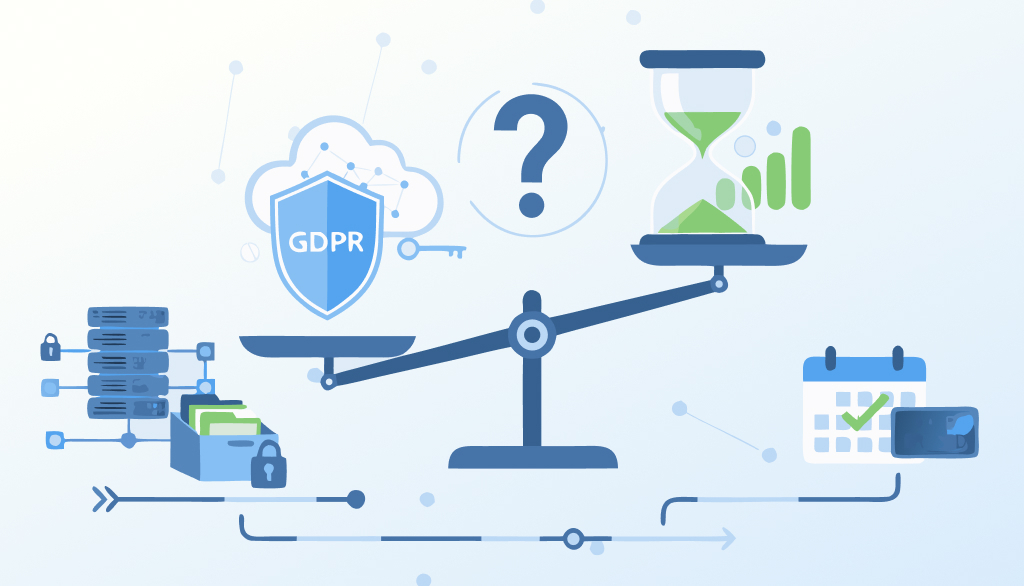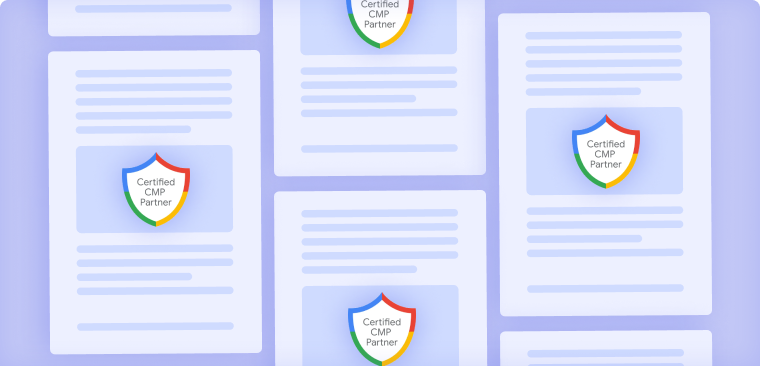Understanding Cookie Policies: A Comprehensive Guide for Website Owners
March 24, 2025
•
3 min read
Table of contents
back
to the top
In today's digital landscape, transparency and user consent are paramount, especially regarding data collection through cookies. Implementing a clear and compliant cookie policy is not just a legal obligation but also a trust- building measure with your audience. In this guide, we’ll explain what a cookie policy is, what it should include, whether you need to list all your cookies, and the consequences of non-compliance (with real case studies). We’ll also clarify how a cookie policy differs from a privacy policy and whether you need both.

What Is a Cookie Policy?
A cookie policy is a document that informs users about the cookies and similar tracking technologies your website uses. It typically explains what cookies are, which cookies are in use, their purpose, and how users can control them. The purpose of a cookie policy is to ensure transparency and build user trust. Websites need to have a cookie policy (and a cookie consent notice) to comply with global data protection laws. In regions with strict privacy regulations, a cookie policy isn’t just good practice – it’s often legally required. Laws like the EU’s General Data Protection Regulation (GDPR) and the ePrivacy Directive (often called the “EU cookie law”) require websites to inform users about cookies and, for non-essential cookies, obtain user consent before setting them. Similarly, the California Consumer Privacy Act (CCPA) mandates that businesses clearly disclose their online tracking and provide users with choices.
What Should Your Cookie Policy Include?
A well-structured cookie policy should cover the following key points:
- Notice of Cookies: A clear statement that your site uses cookies.
- What Cookies Are: A simple explanation of cookies and how they work.
- Types of Cookies Used: A categorized list of cookies (e.g., strictly necessary, functional, analytics, advertising cookies).
- Purpose of Each Cookie: Explain why each cookie is set and what data it collects.
- Third-Party Cookies: Disclose any cookies from third-party services, such as advertisers or analytics tools.
- Duration of Cookies: Specify whether cookies are session-based or persistent.
- User Consent and Control: Explain how users can manage their cookie preferences and withdraw consent.
- Legal Basis for Cookies (if applicable): Under GDPR, most cookies require user consent.
- Updates and Changes: Mention when the policy was last updated and how changes will be communicated. Do I Need to Include All Cookies in My Cookie Policy? Yes. Your cookie policy should list all cookies in use, even if some are non- essential. This allows users to make informed decisions about their data. Under GDPR transparency requirements, users have the right to know exactly what cookies are doing on your site. Failure to provide sufficient information about cookies has resulted in companies being fined. Has Anyone Been Fined for Not Having a Cookie Policy? Yes, businesses have been fined for failing to comply with cookie consent laws. Here are a few notable cases:
- Google – €150 million fine (France, 2021): Google was fined by CNIL for making it easier to accept cookies than to refuse them, violating GDPR principles.
- Vueling Airlines – €30,000 fine (Spain, 2018): The airline failed to provide users with an option to reject cookies.
- Sephora – $1.2 million fine (California, 2022): Sephora violated the CCPA by not properly disclosing its data-sharing practices via cookies and failing to honor user opt-outs. Do You Need Both a Cookie Policy and a Privacy Policy? Yes, but they serve different purposes:
- Privacy Policy: Covers all aspects of how your website collects, uses, and protects personal data, beyond just cookies.
- Cookie Policy: Focuses specifically on cookies and tracking technologies. While some websites integrate their cookie policy into their privacy policy, having a separate document enhances clarity and compliance.
Conclusion
Having a compliant cookie policy is essential for meeting legal obligations and building user trust. By ensuring transparency, providing clear user choices, and regularly updating your cookie policy, you can stay compliant with GDPR, CCPA, and other data protection regulations. For an easy-to-implement cookie compliance solution, consider using Cookiepal.io, the fastest and most cost-effective consent management platform available today.
Explore further

GDPR and Data Storage: What’s the Right Retention Period
Guide to GDPR data retention: set purpose-based retention periods, document ROPA, delete/anonymize when no longer needed, and reduce legal & security risk.
October 24, 2025
4 min

What to Look for in a CMP: A Buyer’s Checklist for 2025
Buyer’s checklist for CMPs in 2025: evaluate GDPR compliance, geo-targeting, consent logs, UX, accessibility, performance, pricing—and avoid dark patterns.
November 14, 2025
2 min

How to Prove Consent in a GDPR Audit: Logs, Metadata & Best Practices
How to prove consent in a GDPR audit: required logs, timestamps, user IDs, consent context & withdrawals — plus CMP best practices for audit-ready, exportable records.
October 28, 2025
4 min



